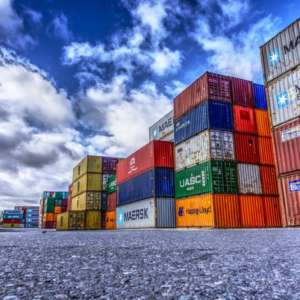This February, KFC experienced its worst nightmare: being a chicken restaurant with no chicken. Hundreds of KFC restaurants in the UK were forced to close for up to a week following a catastrophic breakdown of operations that saw frustrated customers calling the police, desperate franchise managers furtively buying chicken from supermarkets, and thousands of pounds of poultry returned to suppliers or dumped on the side of the road. As KFC put it in a full-page apology advertisement: “It’s been a hell of a week.” The shutdown has grabbed international headlines, and for logistics professionals, it dramatically illustrates the fragility of modern supply chains and the perils of chasing trends and forgetting bedrock logistical principles.
The KFC chicken crisis came immediately after KFC, which operates 900 restaurants in the UK, switched logistics providers, leaving specialty food service company Bidvest for shipping behemoth DHL. When KFC first acknowledged the closures, they referred to some “teething” issues with their new logistics provider, and have generally been quite graceful in not lashing out at DHL. Bidvest, however, has not been so restrained, claiming that DHL undercut them in contract negotiations, despite being unready to handle the specialized challenges posed by perishable chicken delivery. DHL, for its part, has been mum on the exact cause of the crisis, saying only that “we are not the only party responsible.” However, as this story has unfolded, each new article has revealed a botched transition, and a distribution model that was both technologically and physically unready to take on the challenge of serving KFC.
Technology analyst Chris Hill was quoted in the Guardian blaming closures on a shift in ordering practices, saying: “If you were one of KFC’s 750 franchisees you could order your replacement chicken and…within about 24 hours a lorry from Bidvest would appear outside your store with what you needed. The stores were used to that kind of just-in-time ordering, and that’s what’s caught them out.” This is a familiar issue for many retailers adjusting to the low-inventory, lightning fast delivery model, which seeks to keep costs low, but leaves very little room for error. It’s not the only issue at play, however. DHL also promised to handle all of KFC’s chicken out of a single warehouse, whereas Bidvest operated six warehouses throughout the country. Worse, the chicken shortage exposed that DHL’s cold storage depot was not properly registered with local authorities, an inexcusable lapse when handling poultry products, which have a high risk for food-borne illnesses. According to the Financial Times, the fundamental cause of the chicken crisis was an attempt to impose a one-size-fits-all distribution model on a business with extremely specialized needs: in this case, chicken that is fresh, cold, and never frozen. These failures are all the more embarrassing when compared to DHL’s October press release announcing the KFC contract, which promised to “‘re-write the rule book’ and set a new benchmark for delivering fresh products to KFC in a sustainable way.” In light of these events, it seems that it might not be time to throw out “the rule book” just yet.
The KFC disaster is the latest in a string of supply chain stories that have made global news. Ideally, a well-run supply chain should operate silently and invisibly, but the pressure for ultra-lean inventory and fast delivery has created the conditions for dramatic stories like this one. In 2017, Nintendo, a very different company, faced a similar problem. They had badly underestimated demand for the new Switch console, and had to rush production to beat out competitors vying for the same suppliers and manufacturing facilities. The race to market forced Nintendo to ship the Switch via air, at an estimated added cost of $45 per unit. Meanwhile, Apple, in a bid to streamline its supply chain and avert a disaster of its own, is seeking to buy up much of the world’s cobalt directly from miners. The common thread in all these stories is that supply chain management is more complex and high-stakes than ever before. Richard Wilding, a professor at the Cranfield School of Management, summed up the situation in the Guardian, saying: “Companies are no longer in competition with other companies. It’s the supply chains that are directly competing.”
To ensure that your supply chain stays competitive and you avoid this kind of of disaster, contact the experts at Red Arrow Logistics.



